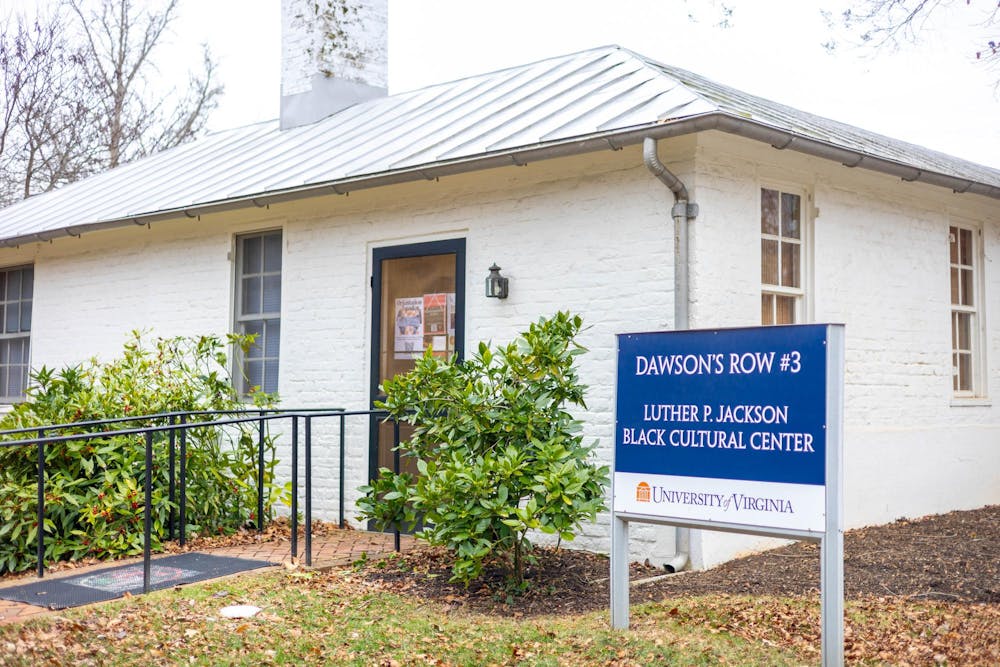Each Friday during Black History Month, the Luther P. Jackson Black Cultural Center invites students at the University to participate in a thought-provoking global initiative called the Race Card Project, in which individuals share their perception of race using only six words. This project began Feb. 14 and will continue until the end of the month.
Spearheaded at the University by the Office of African American Affairs, the Race Card Project offers a space for students to engage in a conversation about race in a creative, yet structured, manner. This year marks the second time OAAA has brought the program to the University. While it did not quite take off last year, they have already received 15 responses, and they anticipate more to come before the project wraps up at the end of the month.
This year, the OAAA has administered the Race Card Project through their Black Fridays program, a year-round initiative for the University’s Black community to enjoy food and conversation each week. Students are invited to attend these Friday sessions at the OAAA to write their RCP responses on dry-erase boards and get their picture taken. To conclude OAAA’s Black History Month celebrations, the RCP responses and accompanying photographs of each participant will be displayed at Dawson’s Row Feb. 28.
Hashim Davis, assistant dean and director of the Luther P. Jackson Black Cultural Center, oversees the current initiative. Davis said he has been inspired by the profound messages students have strung together with just six words.
“The fun thing about [the initiative] is that, like a haiku, you are regimented in terms of how you are describing it,” Davis said. “You can be as creative as you can in describing what [race] means [to you].”
Created in 2010 by journalist Michele Norris, this project has collected over 500,000 narratives across the country. In an interview last year on PBS, Norris described the initiative as a window into the reality of America beyond what is portrayed in news headlines. She noted that the hundreds of thousands of postcards, and now the hundreds of online submissions, reveal the nuance of human relationships and the diversity of lived experience in America.
Tanya Raja, 2025 Race Card Project participant and second-year College student, drew inspiration for her six-word entry from her experiences living in a number of states, as she has had a firsthand view of how race presents itself differently in each area.
“The six words I picked were ‘people in places that shape us,’” Raja said. “Growing up, I moved around a lot, from California, to Texas, to Virginia, to Missouri [and then] back to Virginia.”
For Raja, the project served as an opportunity to think about how having family across the world has shaped her identity.
“I feel like, no matter where [I’ve] lived, it felt like home because my family was there with me,” Raja said. “I think that [people sharing their identities is] pretty important … Everyone, just being able to [share] their story, really makes a difference.
Davis, like Raja, said that he believes race is a multifaceted subject, with the capacity to be both turbulent and influential for students. This range comes through in the project, as there have been a variety of themes that have emerged in responses so far, according to Davis.
Davis said that he sees the Race Card Project not just as an opportunity for personal reflection, but as a chance to grow and understand race in new, unconventional ways.
“In having these types of conversations, I think, dare I say, it could be fun,” Davis said. “And just getting some insight on how students are looking at how they view race, again, within the context of only [being] able to use six words.”
Davis shared that it has been fascinating to learn about each participant’s individual understanding of race, and he hopes to bring the project back to Grounds in the years to come. He stressed that the Race Card Project is all about bringing people together — a mission that shines through in his own six-word response.
“I love me. I love you.”







